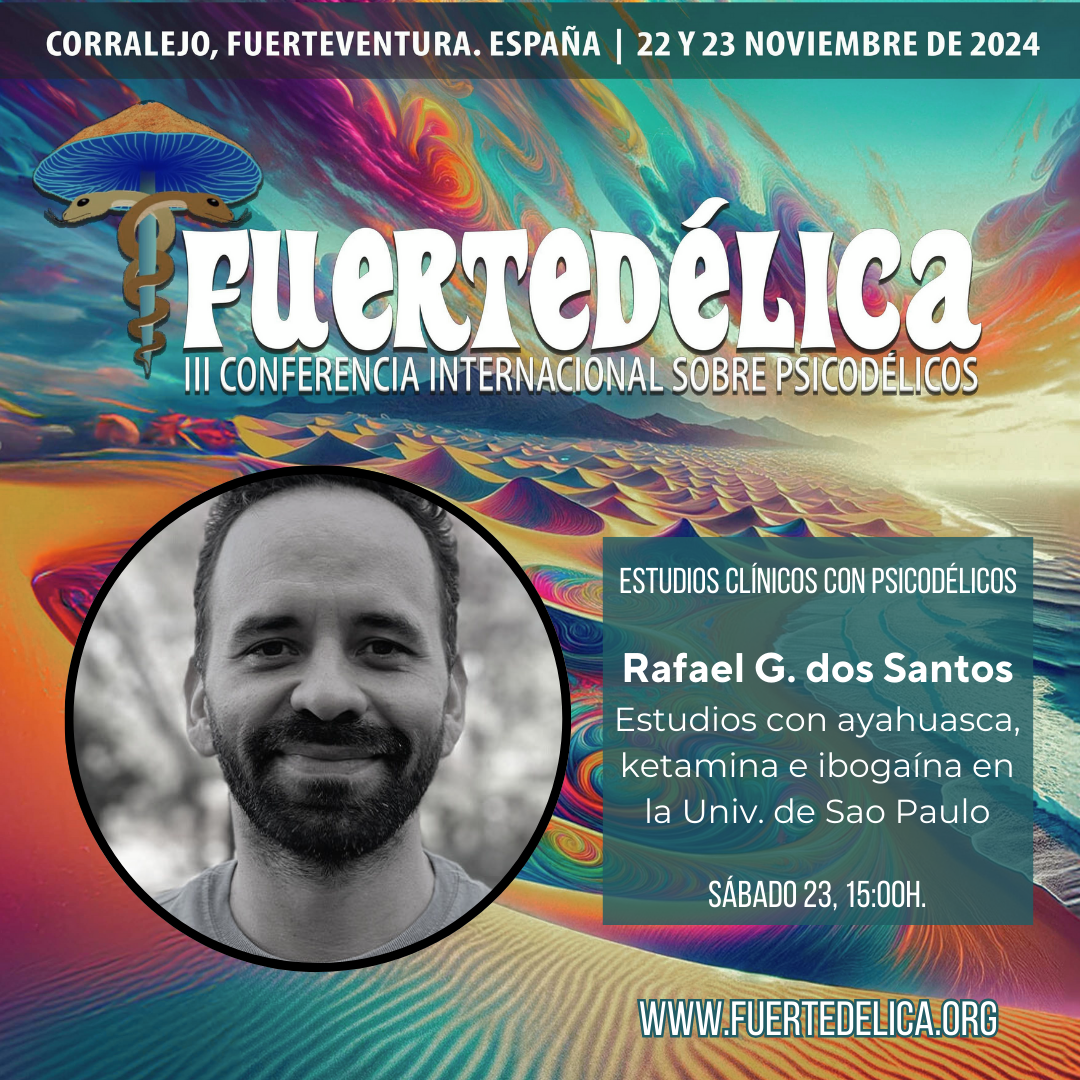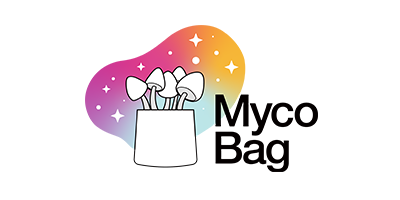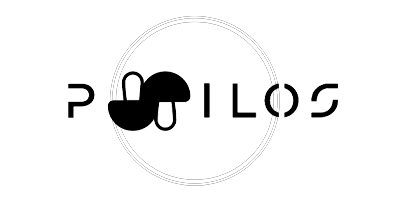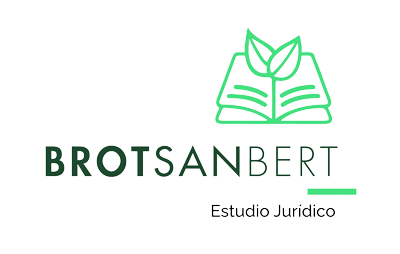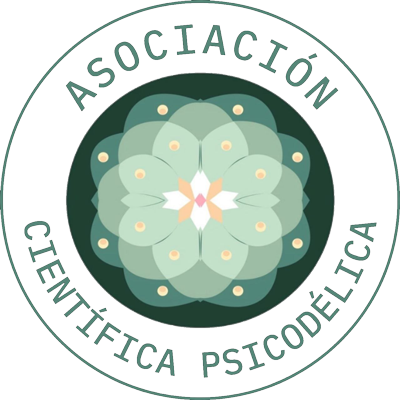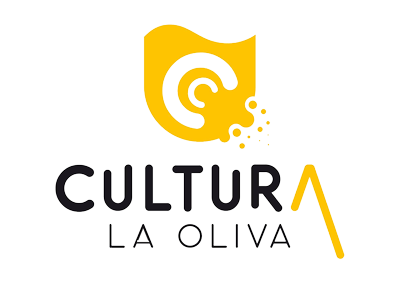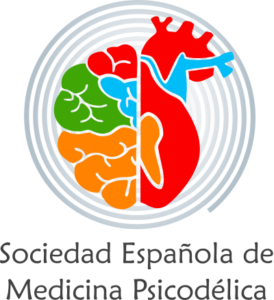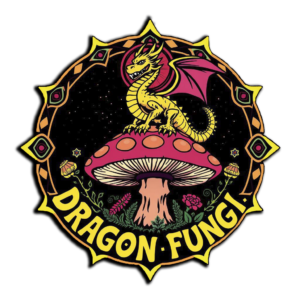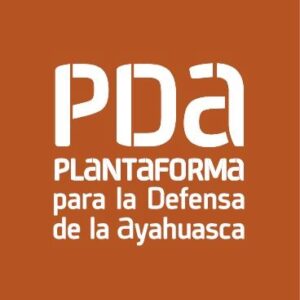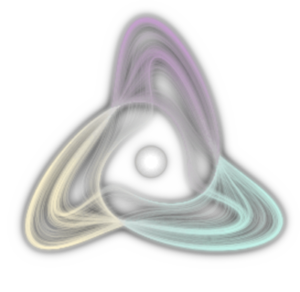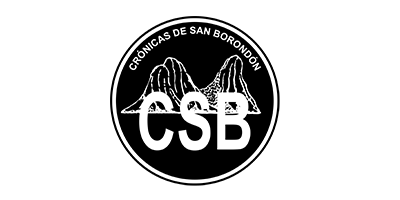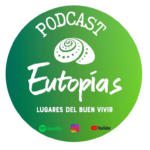Rafael Guimarães dos Santos is a world-renowned expert in scientific research on ayahuasca. A disciple of Jordi Riba at Sant Pau Hospital, Dos Santos leads several cutting-edge investigations with ayahuasca, ibogaine, and ketamine within the Department of Neuroscience and Behavioral Sciences at the University of São Paulo. In this interview, the Brazilian researcher gives us a preview of his presentation at the upcoming edition of Fuertedelica.
Is ayahuasca a psychedelic?
Well, yes, from a pharmacological point of view, ayahuasca would fall within psychedelics or hallucinogens.
Both?
Personally, I prefer to use the word “hallucinogen,” although for some people this seems somewhat offensive because it alludes to hallucination, but in reality what we want is precisely to remove the prejudice against hallucinations. People with different types of conditions, including people with Parkinson’s, can have hallucinations, and even we can have hallucinations in dreams.
Do psychedelic and hallucinogen have the same meaning?
I consider them interchangeable. In my scientific profession I use both, although I often find that the term “psychedelic” is more intelligible to people, but at the same time it’s the term that’s in the media. Both have advantages and disadvantages. I use both.
Indigenous peoples don’t like the term psychedelic much when we talk about ayahuasca, right?
Of course, for them ayahuasca already has its own name. It’s “daime” for Santo Daime, “hoasca” for the UDV, “natem,” “camarampi“… they have their own definitions. We scientists or researchers use these terms psychedelic or hallucinogenic to make it intelligible for us, but each indigenous group or even ayahuasca religions have their own names for ayahuasca. I think it’s a term that at the same time is good because anyone will understand it, but the truth is that they are substances that are very difficult to define, what kind of effect they have then “psychedelic” refers to expansion or regulation of the mind, while “hallucinogen” would be in the original sense “mind wandering”.
Anyway, it has limitations so in the end I think it depends on the researcher who is using it. In biomedical science, both terms are common, what doesn’t appear in any way in the biomedical universe is the term “entheogen,” which has a more spiritual or religious connotation from its origin.
Tabla de Contenido
ToggleRound table at Fuertedélica
What are you currently working on at the University of São Paulo? What are you going to tell us at Fuertedélica?
Here I am a professor in the Department of Neuroscience and Behavioral Sciences and a professor of Psychiatry at the Faculty of Medicine. What we basically try to do here is answer questions about the safety of ayahuasca in healthy people, as well as research with people with major depressive disorder, post-traumatic stress disorder, and patients with depressive disorder associated with a cancer diagnosis.
On the other hand, we are investigating the possible analgesic effect of ayahuasca in people. To do this, we induce pain with heat in healthy individuals and administer ayahuasca to them before and after.
Ayahuasca as an analgesic?
That’s right. There are some reports from people with chronic pain, fibromyalgia, or some clinical conditions that have pain as a component, including depression. There are different lines of research that suggest that ayahuasca could have an analgesic effect. There are even preclinical studies in animals and cells that show that isolated alkaloids from ayahuasca have anti-inflammatory effects. To investigate this possible effect, we have started with a healthy population and in the not-too-distant future we want to do a clinical study with a group of people who have chronic pain, for example, headaches or fibromyalgia.
«Research on ibogaine has been discouraging»
The title of your talk also mentions studies with ibogaine, what can you tell us about that?
Indeed, we’ve just closed a study with volunteers who have quite intense alcohol consumption. We gave them a single dose of ibogaine and the truth is that the results have been quite discouraging: we have observed worrying cardiovascular effects from a clinical point of view and little efficacy. We haven’t found a significant reduction in alcohol use. I know this won’t please some people, but we are concerned about the ibogaine clinics that are proliferating.
Rafael Guimarães dos Santos participates in the round table ‘Clinical studies with psychedelics’, with a talk on “Research with ayahuasca, ketamine and ibogaine”. It will be on November 23, starting at 3 pm, at Fuertedelica.
